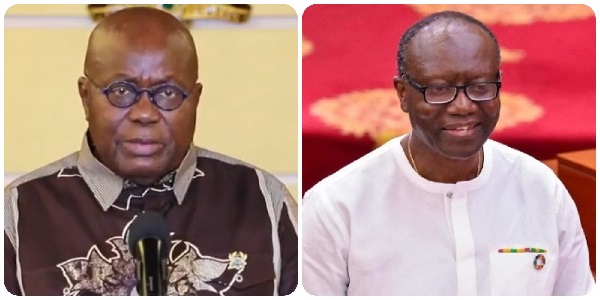
Resolving Ghana’s debt timely, orderly
Certainly, a tidy, vigorous and balanced development of Ghana’s economy is not only the state and her citizens’ responsibility. It is undoubtedly of a prime concern for the United Nations and all of its component departments, agencies, programmes and funds. It is often literally said that a debtor eats. However, there cannot be an enjoyment of human rights and a guarantee for fundamental freedoms for any country consistently plagued with debts.
The risk of significant disruption of economic activity and employment, because of inability to service public debt, is obvious. It was on this tangent that as then Chair of the G20, Japan made debt sustainability a priority issue on agenda.
Advertisement
Ghana, unsurprisingly, has applied officially for debt forgiveness. The country graciously received $6 billion debt cancellation in the 2000s. My expectation is that the creditor community will appreciate the seriousness of Ghana’s current predicament just as it was recognised by the official benevolent community in: 1987 when the Paris Club decided to apply for the first time more concessional rescheduling on so-called Venice terms. Furthermore, the 1989 generosity of the Toronto terms, granting highly indebted countries 33 per cent debt reduction, cannot be glossed over. The London terms in 1991 granted 50 per cent debt reduction, the Naples terms in 1994 gave 67 per cent debt reduction and recently the Lyons terms in 1998 giving of 80 per cent debt reduction are so fresh in our minds. Concessions of rescheduling terms has been increasing severally. Ghana’s request is firmly grounded on several fronts in economic, social, political, legalities, and morality. All, notwithstanding competitiveness, recent scarcity and high cost of global funds.
Debt forgiveness
The last article concluded on the argument of symbiotic contributory failures lenders and borrowers in continuing loaning to (near) defaulting nations, which makes the former complicit in seeking recovery instead of closely scrutinising the possible consequences.
Ghana’s external debt has become so engulfing to wane her ability to service same. It’s even precarious, looking at the cyclic nature of the debts and therefore nothing short of occasional debt forgiveness, (debt relief, debt alleviation, debt remission, or an outright cancellation of debt is arguably the choicest way).
It is in the best economic interest for the bilateral, multilateral partners and developed world in general for Ghana to be a viable business and economic partner. On the parity of diminishing marginal utility of money, debt forgiveness would have positive re-distributive effect of global resources and do more good to developing nations like Ghana and the global economy than it would to the wealth of the richer nations.
Socially, the poor is constrained of basic conditions of survival, let alone prosperity. Being free from debt will unleash the utmost potential of the teeming human capital towards development course. Enforcement of debt obligations risk the poor to starve, die of preventable diseases, or continue to lack basic education. Contrary, investors and the banks merely experience reduction in profits.
Political, legal urgings
There is an urgent need for world powers to partner Ghana in maintaining political legitimacy. Poverty and deprivation are not just critical sources of tensions and strife, but do greatly undermine stability and order.
Legally, unsustainable debt poses high risk to international prosperity, peace and law, all of which offers great challenge to the world order. General principles of human dignity and self-determination is focal in the instance case.
Conclusion
A caution to borrowers, as it is commonly and arguably appropriated somewhere that “the rich rules over the poor, and the borrower is a slave of the lender”, should be a wakeup call for Ghana to wean herself off the intractable quagmire of debts.
The writer is a Research and Compliance Manager, Provident Insurance Company
E-mail:[email protected]




